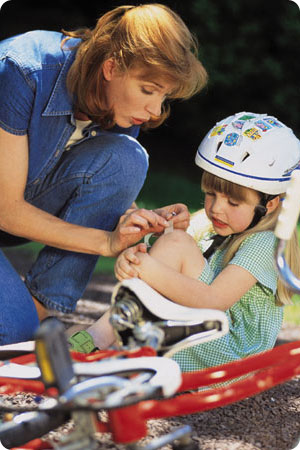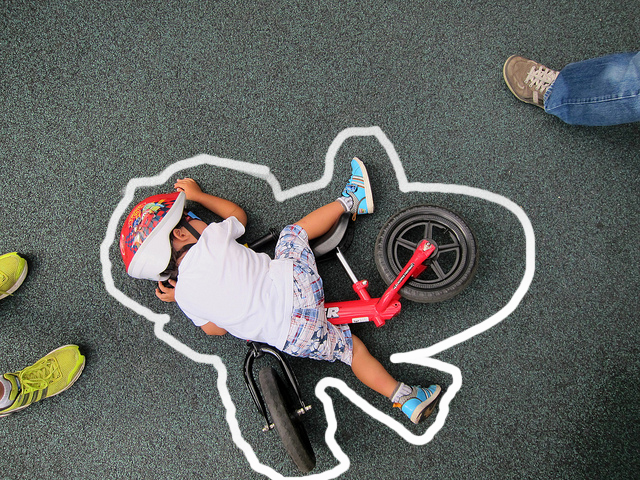 Have you ever considered that the absence of something can harm you? What if I upped the ante and included “something that hurts and/or scares you? What if I included “something that plainly causes physical damage.” Would you really know what I was talking about? If this line of reasoning seems totally bizarre I’ll give you some contexts to see what I’m driving at.
Have you ever considered that the absence of something can harm you? What if I upped the ante and included “something that hurts and/or scares you? What if I included “something that plainly causes physical damage.” Would you really know what I was talking about? If this line of reasoning seems totally bizarre I’ll give you some contexts to see what I’m driving at.
Imagine if someone hadn’t stuck a needle into you as an infant to vaccinate you against various deadly diseases. What if the doctor refused to vaccinate you because it would cause pain and the needle would damage your skin? How about if you started pitching a fit and the nurse refused to give you the shot because you were obviously scared? Is it ethical for a medical professional to withhold treatment known to be beneficial and effective because it might hurt, scare or damage the patient?
Now that we have a context I’m going to throw you the curve ball. Why is your behavior any different than your body? Your behavior is produced by organs – the brain, the central nervous system and muscles. Behavior is a physiological function just like processing fluids or breathing. Without your brain you cannot behave. Without your body you cannot behave. Behavior often causes pain, fear and trauma to your body in the process of living your life. At any given stage of your life you may be forced to choose medical treatment to improve your body. You would likely be displeased if a doctor or nurse withheld medical treatment because it might “hurt you”. How would you feel if I withheld training designed to make you better behaviorally because it may cause fear, pain and temporary trauma? Are we still on firm footing or are you starting to pull back a bit?
You may have flinched when I said I might make your behavior better by having you do things that cause pain and fear. If so, I will now ask if you know how to ride a bicycle and who helped you do it? Before we investigate this activity, remember that you requested the bike in the first place. Nobody forced you. Whatever comes of riding a bike is the result of you “asking for it.” Second, the people most likely to have bought you the bike were your loving parents. Also likely they probably got one with “training wheels” – a set of wheels that allows you to learn some aspects of bike-riding that reduces the likelihood you will crash. During this crash-free period you can learn to steer the bike, peddle and use the brakes. What you cannot learn is fine motor functions connected with keeping your balance. You also cannot learn to allocate part of your brain to balance at all times. That only comes when the training wheels come off. The reality is that a) You asked for it b) Your parents got you the bike knowing what was going to happen c) You wanted the training wheels off because you wanted to ride “like the big kids”. Then you fell. Ask yourself if the pain and fear of that fall stopped you from learning to ride a bike?
Think back on your childhood and objectively evaluate the impact of that first and subsequent falls on your tendency to ride a bike. Did the pain and fear generated when you fell stop you from continuing to ride a bike? No, it didn’t. The same can be said of many things you did as a child that included some element of pain or fear. The real point is that a fear-o-phobia is stupid. Fear tells you to be cautious. Your startle response causes an instantaneous reset of your repertoire that allows you to react to startling events. Your physical ability to sense heat or cold allows you to move closer or farther away from a heat/cold source to protect your body’s core temperature. That way you avoid heat stroke or freezing to death. Likewise, hunger, an unpleasant to painful sensation, drives you to find food. Thirst triggers searching for water. All of these things exist to help you survive at the most basic levels and can only be ignored at the risk of harm.
Despite the inescapable logic of the purpose for these unpleasantries, “positive” ideologues continue to preach a  catechism that somehow merely experiencing something unpleasant is automatically bad. Here’s
catechism that somehow merely experiencing something unpleasant is automatically bad. Here’s  an example. On the left you have the reality of learning to rid
an example. On the left you have the reality of learning to rid e a bike. On the right, you have the positive ideologue’s view. Take your pick. You can be rational and live fully or irrational and be a zombie – meaning someone who is not truly alive. The same goes for your dog.
e a bike. On the right, you have the positive ideologue’s view. Take your pick. You can be rational and live fully or irrational and be a zombie – meaning someone who is not truly alive. The same goes for your dog.

I appreciate the clarity that you bring to your articles. Rational thought processes are rare these days as all of the emotional thinkers chime in.
So GW,
how do you explain cattle dogs and Jack Russell Terriers?
Laurie,
Why try to explain the former, the perfect blend of tough but responsive and the latter, the perfect blend of a butt-headed knuckle head?